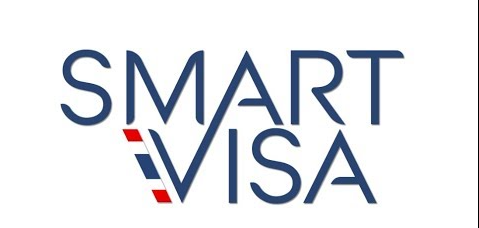Thailand Smart Visa is a specialized visa designed to attract highly skilled professionals, investors, executives, and startup entrepreneurs in specific industries. The visa offers streamlined processes, including work permit exemptions, extended stay privileges, and multiple-entry benefits. This program, launched in 2018, aims to support Thailand’s transition into a tech-driven economy by encouraging the development of sectors such as technology, innovation, healthcare, renewable energy, and robotics.
1. Categories of the Smart Visa
The Thailand Smart Visa is divided into five categories, each tailored to different types of applicants:
a) Smart T (Talent)
Designed for highly skilled professionals in target industries such as digital technology, biotech, and robotics. Applicants must have a job offer in a tech-related field and a salary of at least THB 100,000 per month. The visa is valid for up to four years and does not require a separate work permit.
b) Smart I (Investor)
The Smart I visa is aimed at investors who contribute to tech-based companies in Thailand. To qualify, applicants must invest at least THB 20 million in target sectors such as automation, renewable energy, and digital startups.
c) Smart E (Executive)
This visa is for executives in senior management positions in tech-based firms. Applicants need at least 10 years of work experience, with a minimum salary of THB 200,000 per month, and must work in companies within Thailand’s S-Curve industries (emerging technologies).
d) Smart S (Startup)
The Smart S visa is tailored for entrepreneurs who wish to establish startups in Thailand’s tech-focused industries. To qualify, applicants must have a startup plan approved by Thailand’s Board of Investment (BOI) and THB 600,000 in savings or annual income. They also need to establish their business within one year.
e) Smart O (Other)
This category covers dependents of Smart Visa holders, such as spouses and children. It allows family members to live and, in certain cases, work in Thailand during the visa holder’s stay.
2. Benefits of the Smart Visa
The Smart Visa offers several unique benefits compared to traditional visas, including:
- Extended Stay: Smart Visas are issued for up to four years, which is longer than most traditional Thai visas.
- No Work Permit Required: Holders of the Smart T, Smart I, and Smart E visas are not required to obtain a separate work permit.
- 90-Day Reporting Exemption: Visa holders are exempt from the usual requirement to report their location every 90 days, a requirement for most long-term visa holders in Thailand. Instead, they must report their stay once a year.
- Family Benefits: Spouses and children can join the visa holder and, in some cases, are eligible to work without obtaining separate work permits.
- Fast-Track Services: The Smart Visa provides fast-track services at Thailand’s airports, offering a seamless travel experience for visa holders.
3. Application Process
The Smart Visa application process involves several key steps, starting with eligibility verification. The Thailand Board of Investment (BOI), in collaboration with other relevant agencies, assesses whether the applicant meets the criteria for the visa category they are applying for.
a) Eligibility Check
Before applying for the visa, candidates must submit their qualifications, employment contracts, or investment plans to the Smart Visa Unit. Once the qualifications are approved, applicants can proceed to submit the required documentation for the visa application.
b) Required Documents
Applicants generally need to provide the following:
- A valid passport.
- Proof of qualifications, such as employment contracts, investment details, or a startup plan.
- Medical insurance.
- Financial statements, particularly for the Smart S visa.
c) Final Approval
Once all documentation is reviewed, the BOI and related agencies provide final approval, and the visa is issued by the Thai Immigration Bureau. The approval process typically takes 30 working days.
4. Targeted Sectors
The Smart Visa is designed to encourage the development of S-Curve industries, which are key to Thailand’s economic growth. The targeted sectors include:
- Automation and Robotics
- Biotechnology
- Digital Technology
- Medical and Healthcare
- Renewable Energy
- Agriculture and Food Technology
- Aerospace
- Defense
- Education
These sectors align with Thailand’s broader goal of transforming into an innovation-based economy, positioning itself as a hub for technology and advanced industries.
5. Challenges and Considerations
While the Smart Visa offers numerous benefits, there are challenges for applicants, particularly around qualification verification. The process can be complex, requiring significant documentation and evidence of qualifications, financial stability, and investment plans. Moreover, since the visa targets very specific industries, not all professionals or investors will qualify.
Additionally, startups under the Smart S category must demonstrate tangible business progress within a year, meaning entrepreneurs face pressure to establish and grow their businesses quickly.
Conclusion
The Thailand Smart Visa is a forward-thinking initiative aimed at attracting talented professionals, investors, and entrepreneurs who can drive the country’s technological and industrial development. By offering long-term residency, work permit exemptions, and family benefits, the visa is highly attractive for individuals involved in Thailand’s key industries. However, applicants must ensure they meet the strict criteria, and navigate the application process carefully to take advantage of the program’s many benefits.

